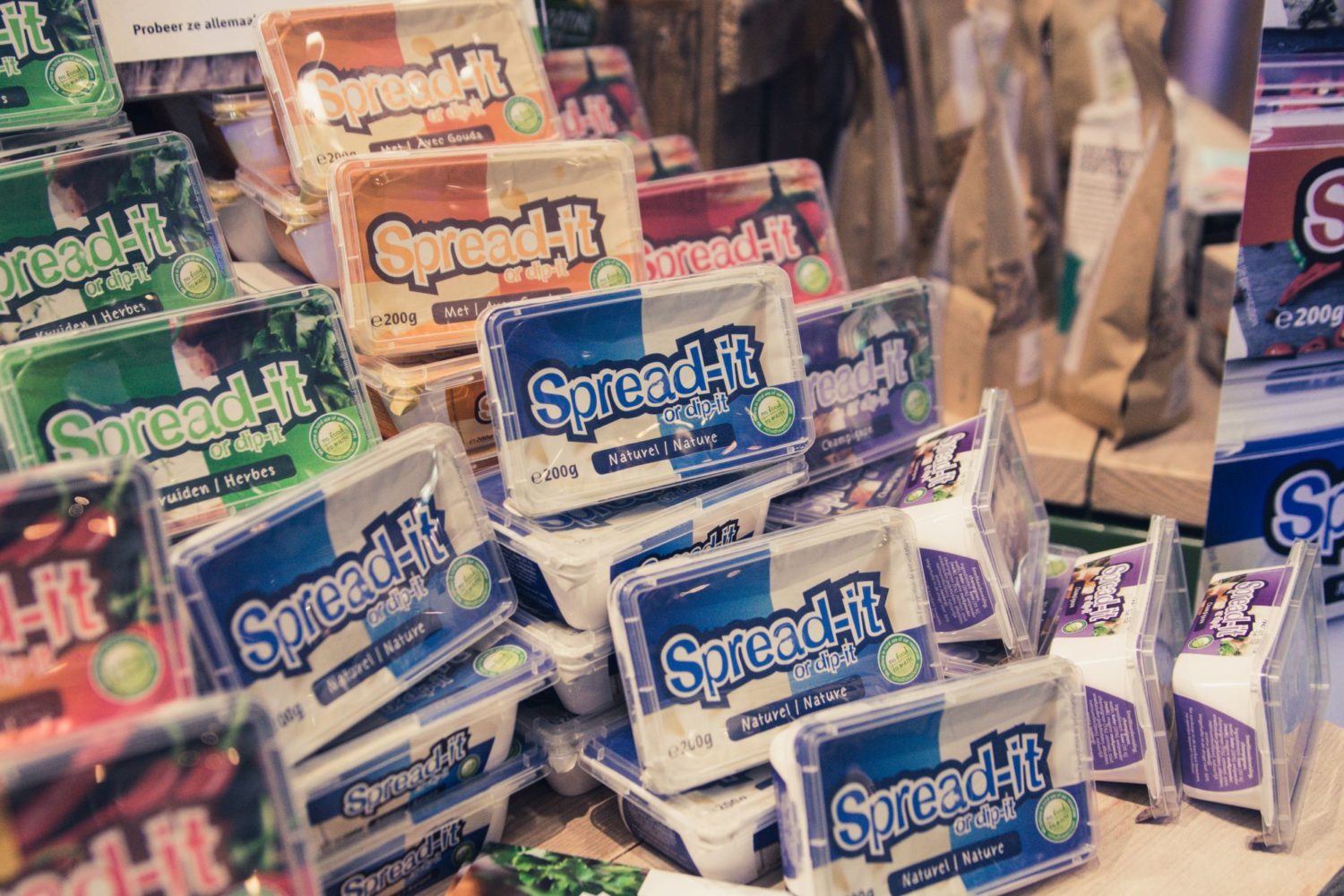It was still a misunderstood business when Dave Bakker saw trade in dairy industry side streams at the turn of the century. Now his company AND Cheestrade in Leeuwarden is a forerunner in the circular economy. 'There is still a world to win in tackling waste within the food sector,' says Bakker. 'That is why, with No Food To Waste, we offer a broad platform to circular food initiatives in the Northern Netherlands.
First, Bakker wants to clear up a misunderstanding. 'If you work with food that falls outside the standards, you have to deal with prejudices about the quality. It must be questionable, too many people still think. While within the industry we have drawn up a side stream covenant, meeting the highest requirements for the processing and re-evaluation of residual streams. Usually it turns out that the idea of 'good or not good' is a matter of perception and expectations. Take the well-known crooked cucumber that actually has nothing wrong with it. To me one thing is really not good and that is the waste of good food.'
The art of valuing
As an entrepreneur, Bakker saw the value of side streams and created a proven business model. 'The idea that side streams have no value is another misconception. Why should a product that does not fit within the standards suddenly be very cheap or even free? We understand the art of adding value because we look at things differently. In the linear production chain, discarding seems the most efficient, but we break through that linear thinking and seize circular opportunities. Therefore, in addition to our regular wholesale, cheese processing and store operation, we have a business unit completely dedicated to tackling waste.'
Obviously, cheese is the basis of the circular business at AND Cheesetrade, although the company is orienting itself more broadly. Bakker is keen to apply his experience and insights to the full breadth of the food sector. 'Dairy is leading the way, but we in the Western world are also struggling with large residual streams of bread, fruit, vegetables and meat. That is why we are looking for food companies in the Northern Netherlands with promising residual streams as well as entrepreneurs with ideas for processing those food streams into products. We can join forces within No Food To Waste, a platform to share knowledge and process promising residual streams into valuable raw materials and tasty products.'
Consumer behavior
AND Cheesetrade itself already developed a creamy spread based on cheese that can no longer be sold within supermarkets. 'We save this cheese from the waste bin and give retailers with our product Spread-it or dip it the opportunity to make their waste profitable,' says Bakker. 'It's falling well and we are now looking for launching customers to jointly tackle waste.
My dream is that circular products like this will become normal in the future, just as fair trade and organic are included in the mainstream supermarket assortment. This also requires something from consumers. They rightly want to know more often where their food comes from and how it was produced, but forget how much influence they themselves have with their buying and consuming behavior. To stay with the cucumber: if we buy en masse only the straight ones and leave the crooked ones, or pay far too little for them, then we are encouraging waste.
'It's a chicken-and-egg discussion,' Bakker realizes. 'That's precisely why I see food waste as a shared responsibility. It is best to regain some awareness of food. Eating according to the seasons. Look, smell and taste for ourselves whether something is still usable, instead of just looking at the expiration date. And develop good habits. For example, the French put camembert under a cover so the cheese can continue to ripen at room temperature. We put it in the refrigerator, which, over time, makes the cheese ripe for the bin at best. I'm just saying: no matter how you design the production process and whatever requirements apply, consumers also have an influence on the food at home. It is an illusion that we can monitor and control everything.'
WE SEE THAT BUSINESS DEVELOPMENT AROUND FOOD WASTE IS QUITE DIFFICULT TO GET GOING IN THE NORTHERN NETHERLANDS. AND CHEESETRADE IS AN INSPIRING EXAMPLE OF ECONOMIC CREATIVITY
Circular thinking
At the same time, Bakker is more aware than average of optimization processes precisely because he also works with side streams. 'The food and goods authorities are convinced of what we are doing, by now consumers are too. Now that the business is going well, it is mainly industrial parties that are thinking more critically about reusing side streams, because they are afraid of claims if things do go wrong somewhere. By thinking this way, you are encouraging waste. With AND Cheesetrade, we have long since proven that side streams are not a gray area. We even set a trend by focusing on circularity, flexibility and quality. It is and remains a challenge to tackle waste, but it can be done.'
'That we in society are making the move to a circular economy should make it easier, but I notice that there is still very linear thinking. Also around regulations, or funding. If I want to build a new facility with residual materials and second-hand machinery, the bank says no because they can't estimate the depreciation value. If I opt for brand new, they will. Because of the linear thinking, I also see that a lot of subsidy money gets stuck in pushing things forward, while no concrete steps are taken. As an entrepreneur, I am all about getting things done, but we need each other. With No Food To Waste we are therefore giving the initial impetus to bundling initiatives against food waste.
Want to know more about AND Cheesetrade?
Want to know more about No Food to Waste?
